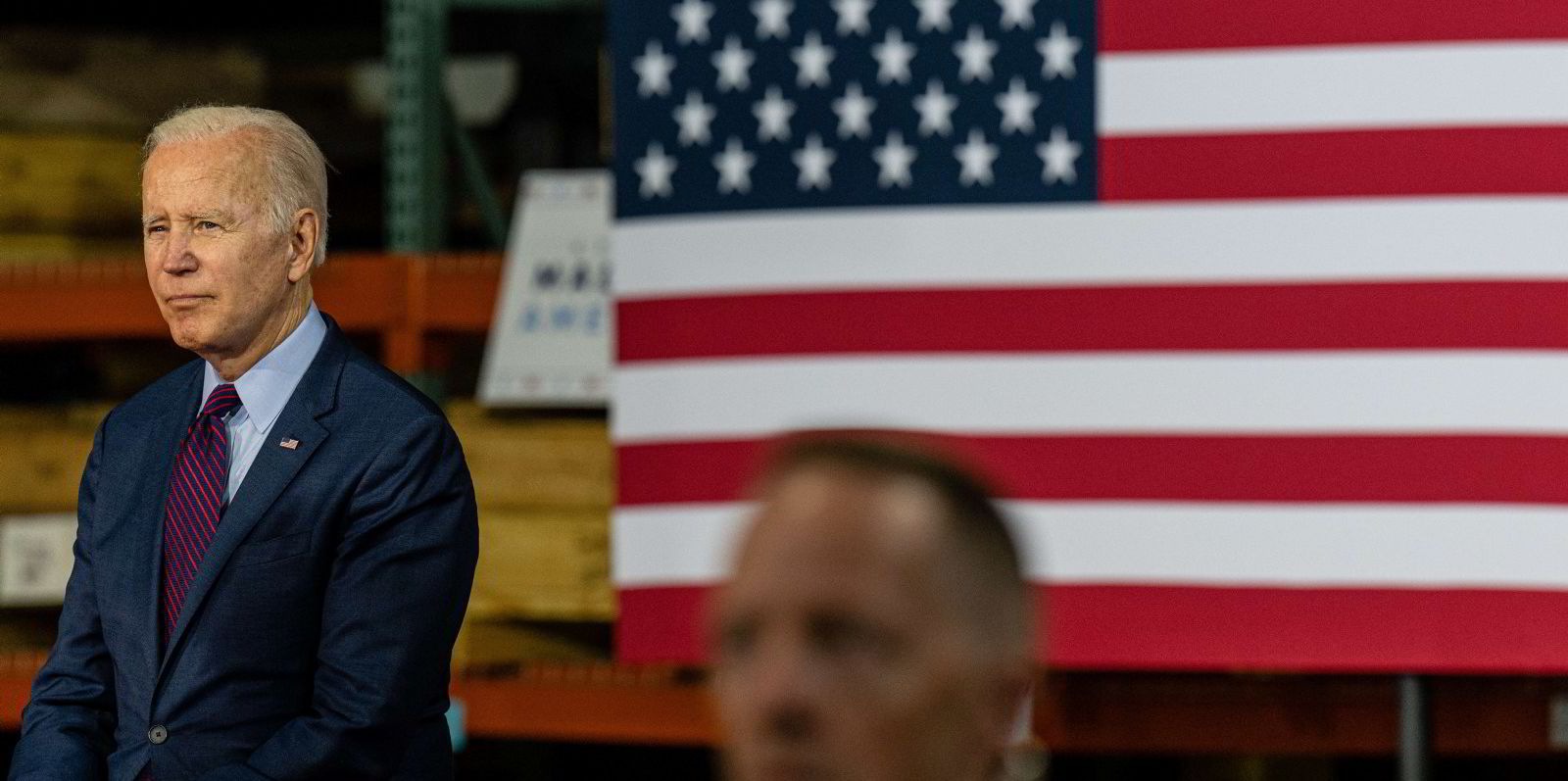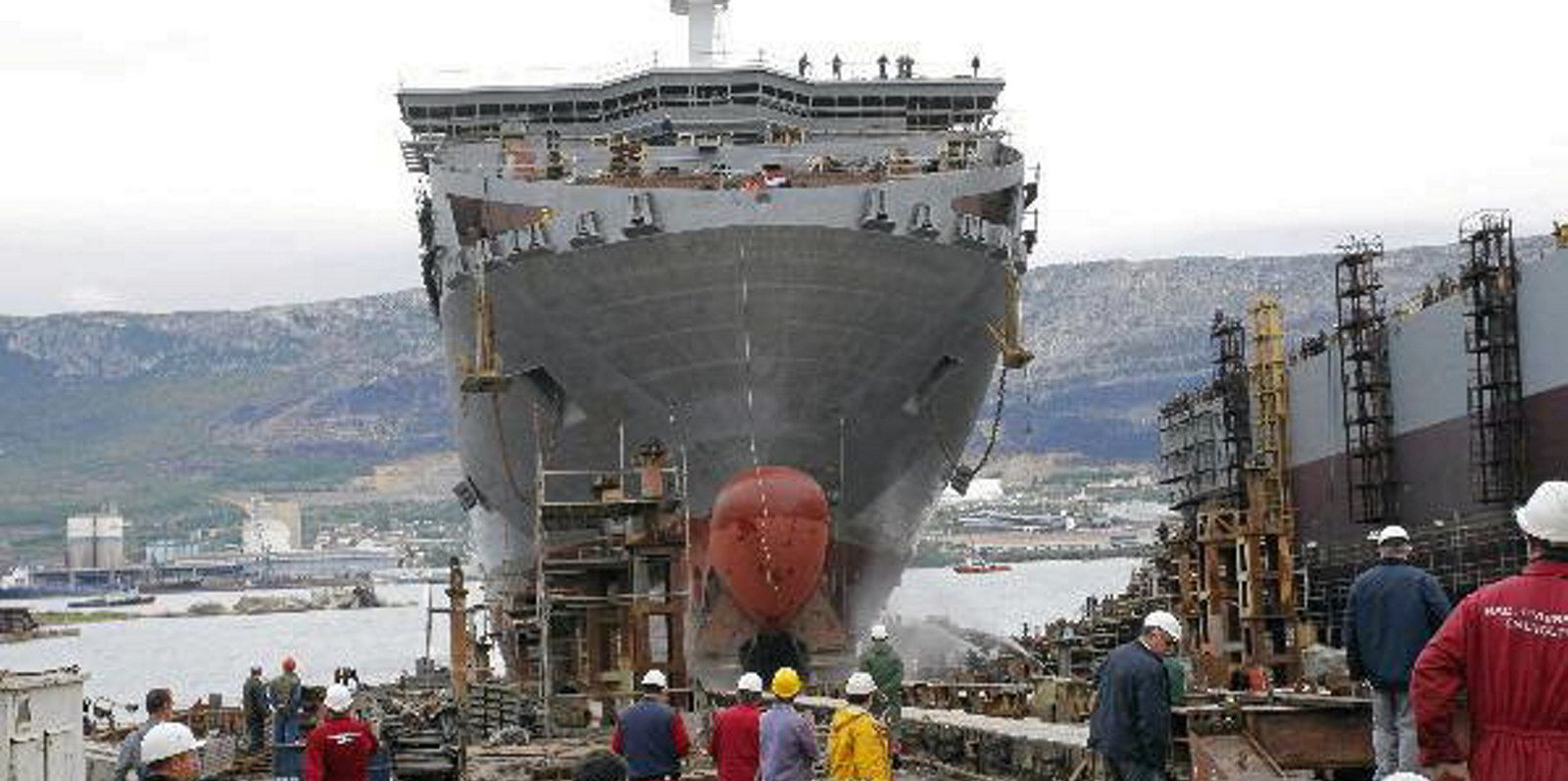A divide has emerged between the US and European Union over targeting the shipping sector with sanctions aimed at punishing Russia.
Washington, which had previously eschewed major actions against shipping in its sanctions regime aimed at Russia, has placed the sector squarely in its crosshairs, with a swath of ships and their owners put on a blacklist and more such actions expected.
The European Union, on the other hand, has reportedly dropped plans for additional sanctions targeting shipping, after member countries Greece, Malta and Cyprus expressed concerns.
As TradeWinds reported on Sunday, the US added 69 Russian-flag ships, seven of the country’s shipowners and a marine engineering firm to its blacklist of so-called specially designated nationals, or SDNs.
In a reflection of the Biden administration’s efforts to coordinate US sanctions with other western powers, the announcement came on the same day the Group of Seven, which includes three key EU nations, committed to “phasing out or banning” the import of Russian oil in a way that leaves time to find alternative supplies.
Washington also unveiled a raft of other sanctions, including rules that will prohibit Americans from providing accounting, trust and corporate formation services to anyone in Russia.
The US had previously issued sanctions against ships owned by targeted Russian banks and put limitations on investing in debt or equity of tanker giant Sovcomflot (SCF Group), but Sunday’s move was the first time that Washington had blacklisted shipping companies because of their maritime activities since Russia’s invasion of Ukraine started.
The move was not a surprise to those who watch US sanctions.
“In some ways, Russia’s sanctions are sort of a unique approach,” one US sanctions expert said. “In other ways, it looks like the playbook that the US has used with Iran and Venezuela, and we know that shipping and energy have always been a component to that.”
And the blacklist, which leaves out Russia’s major shipping groups from blocking sanctions, is expected to grow.

“It shows their gaze is definitely turning to the shipping industry,” the expert said of US officials. “There’s still definitely more room to name more targets and impose more hurt to Russia’s shipping industry.”
Meanwhile, the European Commission unveiled on 4 May proposals for its sixth set of sanctions against Russia, with an aim to stop importing Russian crude within six months and oil products by the end of the year.
The envisaged sanctions would hurt shipping as well, as they would effectively prevent European shipowners, brokers, charterers and insurers from getting involved in the transport of Russian oil even to third countries where it will remain legal, such as China and India.
The EU had been so far quick to pass formally all its previous sanctions against Russia, within two or three days of their initial announcement.
The sixth package’s proposed restrictions on importing oil, however, has met with considerable resistance. The biggest obstacles are landlocked countries, such as Hungary and Slovakia, that depend to a large extent on Russian oil carried via pipeline and that want to obtain multi-year exemptions from the import ban.
According to reports by German newspaper FAZ, Hungarian foreign minister Peter Szijjarto on 9 May publicly threatened to veto the sanctions. On the same day, EC president Ursula von der Leyen travelled to the Hungarian capital Budapest to seek a solution.
Quieter objections to the package have been raised by a different camp of countries, such as Greece, Cyprus and Malta, that are among the world’s biggest shipowning and ship-management hubs and are concerned that the plan’s maritime provisions will provide an unfair advantage to non-EU maritime players.
Their concerns carried the day, with two sources telling the Financial Times that the officials have dropped plans to ban EU-flag ships from carrying Russian oil.
Greek shipping minister Yiannis Plakiotakis indirectly addressed his nation’s concerns in a speech on Monday.
“We must preserve the original message to the aggressor state, while at the same time making sure that our economies aren’t hurt more than the aggressor’s,” Plakiotakis said.
“Sanctions must be accompanied by detailed impact assessments to avoid shortage of vital goods crucial to the functioning of equally important sectors of the European economy — including shipping.”
US authorities placed blocking sanctions against seven shipping companies, 69 of their ships, and a marine engineering firm.
Oboronlogistika
A Moscow-based, government-controlled shipping company. Three ro-ros blacklisted.
SC South
A subsidiary of Oboronlogistika. Three general cargoships and a ro-ro blacklisted.
Northern Shipping Co
An Arkhangelsk-headquartered shipping company, better known as JSC NSC Arkhangelsk, focused mostly on general cargo ships operated in Russia’s north-west. Blacklisted are 21 general cargo ships, two dredgers, three hopper barges and a tug.
Transmorflot
Shipping company based in the Russian republic of Dagestan on the Caspian Sea. Blacklisted are 13 general cargo ships and three ro-ros.
M Leasing
Moscow-based lessor. Three ro-ros added to blacklist.
Marine Trans Shipping
Shipping company based in Astrakhan. One tanker blacklisted, but company also operates M Leasing’s three blocked ships.
Nord Project Transport
St Petersburg-based shipping company focused on the port of Arkhangelsk. Two bulkers, two chemical tankers and 11 general cargo ships blacklisted.
Fertoing
St Petersburg-based marine engineering firm.




